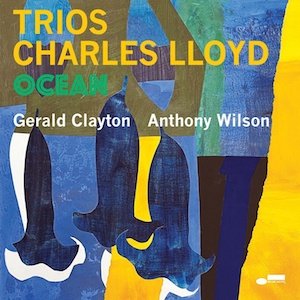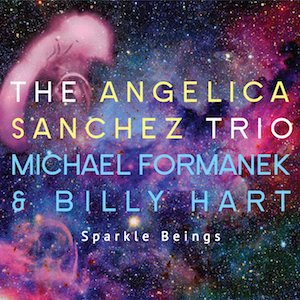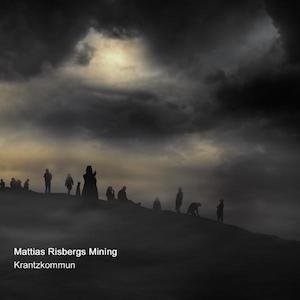Label: Whirlwind Recordings, 2022
Personnel - John Escreet: piano; Eric Revis: bass; Damion Reid: drums.
The music of John Escreet (David Binney, Antonio Sanchez), an incredibly modern pianist and composer born in the UK and based in L.A., is cryptically meticulous and freeing in its unusual logic. He combines composition and improvisation in a way that surprises at every record.
Like happened with his previous outing, Learn to Live, Seismic Shift, his ninth album as a leader, is worth exploring due to the force and inventiveness of the music. For this one, Escreet enlisted a more than compatible rhythm team of creatives: bassist Eric Revis (Branford Marsalis, Jeff Tain Watts), and drummer Damion Reid (Steve Lehman, Liberty Ellman), and even dedicated them “RD” (short for Revis and Damion), where the bass follows a regular walking step in five, expanding midway, when there’s plenty of harmonic color. Kinetic pianistic flurries dance in and out of scope on top of a challenging rock-solid rhythm. Also developing in five but more meditative, “Perpetual Love” doesn’t inhibit Escreet from exploring the keyboard with a wide tonal range and motion. Yet, the vibe changes on the minute Revis begins a fleet unaccompanied bass statement that will trigger subsequent reactions from piano and drums.
The improvised “Outward and Upward” goes totally abstract, while incorporating different timbres, drones, and cyclic figures. It gains a distinguished form when Revis ignites a 10-beat-cycle arco groove. “Digital Tulips” features Escreet in a two-hand confluence of melodic angularity within an accessible phrasing and harmonic turbulence. And “The Water is Tasting Worse” brings the proceedings to another level, intermingling winding discourses and entrancing rhythmic mechanics. It’s a solid convergence of avant-jazz, electronica, and post-bop ingredients.
The strongest moments on the album are achieved with the first couple of tracks. “Study No.1” is a fire starter propelled by an unabashed spectacle of intricate rhythms, hypnotic intervals, and mind bending textures; “Equipoise”, which was penned by the respected pianist Stanley Cowell, is less hectic and more melodic, incorporating skimming piano runs to create shivering undercurrents.
Escreet fires up this blazing new trio with creative explosion, making clear he’s here to stay as one of the most talented pianists around.
Favorite Tracks:
01 - Study No. 1 ► 02 - Equipoise ► 09 - The Water is Testing Worse








































